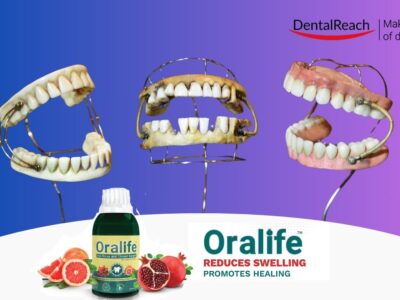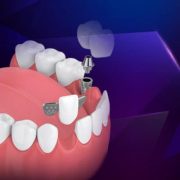Dr Jane walked into her own practice like an employee under pressure. Dressed simplistically, not so keen about presentation. Her eyes were sunken from lack of sound sleep. Her morning started with popping an Asprin after tea. Her neck was hurting. Her mind wondering around yesterday’s patients. She was stressed, as the patients kept sending her emails and messages on WhatsApp. The dental lab kept calling her since morning to recall the patients, to repeat an impression. ‘Oh, I forgot to pour my casts of two patients who came last evening’, thought Dr Jane to herself. The implants which had been delivered the other day were not in conjunction with the sizes she ordered. One of the letters on the board light went off last evening. Waste had to be collected for three days. The material department kept asking for their payments. But instead she had to pay for the old dental chair repair. The finances just didn’t seem enough despite having a fair number of cases this month. Does this situation sound familiar to you?
Well if it is, it’s time for you to rearrange your style of functioning. A lot of things that require your attention has long past its due date. You’re under stress. So how does one make out that he/she is stressed?
Effects of stress on a dentist’s life
On your health
- Back pain
- Spondylitis
- Chest pain
- Muscle tension
- Change in sleep patterns
- Headaches and migraine
- You tend to overeat
- You may start consuming alcohol or start smoking often
On your moods
- Anxiety on patients and staff
- Restlessness making it difficult to be in clinic for long hours
- Lack of motivation
- Get irritated quickly
- Sadness and depression
- You avoid taking cases which otherwise interest you
- You lack creativity
On your family
- You carry your stress home, which making your spouse stressed
- You avoid taking responsibility in family because you think you already have enough on your plate
- Family fights
On your practice
- Your staff finds you unapproachable
- The ambience in your clinic is always tense
- Patients start getting irritated
- Patients withdraw from you, ask for other dentists instead
- Colleagues avoid you and form groups
- Your practice struggles
All this pain you go through just because you are not able to cope up with stress. In this article I will be discussing some strategies you can use in your daily routine to kick words like boredom, stress, anxiety out of your life.
Firstly, I did like to tell you to think out of the box. A growth mindset requires you to shift your thoughts from ‘I know everything already’ to ‘I want to know something new today’. Once you start seeing things from a new perspective, I can help you change any scenario from a stressful to a pleasurable one.
What is management?
Management stands for planning, organizing, directing and taking total control on yourself and your practice.
Having worked in several practices over 10 years of my career. I could see a wide variation in the management styles from one practice to another. From single chair dental practices to multi-specialty dental hospitals, the management style differs. But one thing that was common in all was the proprietor of the practice always remained calm and motivated. The success of most multi chain practices lies in the way the dentists are trained to channelise their skills and personality in day to day basis.
A stress-free ambience is a must have for any dentist to stay long in practice. A good balance in work and home affairs are key to being stress-free.
‘Failing to plan, is planning to fail.’
The most accomplished people in the world are not the most intelligent people but the best planners.
Here are some steps dentists can use to plan their daily practices to lead a stress-free life:
A dental practitioner has two sides of a life. One life is in practice, the other one is outside their. When there is a synchronization in your outside as well as inside life, that’s when you excel as a dental practitioner’s. Dentists who do not believe in this statement, are prone to stress.
Steps to follow in practice to reduce your stress levels
The crucial first hour:
Have you thought over what is the first thing you do as you enter the clinic. This is the most crucial hour for a dentist who works full time and you know you got to have energy reserved for yourself until 9pm.
A quick check in this order in the first one hour as a dentist
1. Clinic ambience
Make sure where you spend the next 12 hours of your life, looks clean and smells nice. A gloomy desk can make you depressed in a few hours. The stands, stationery are all in place. Keep some fresh flowers if it is possible.
Take a walk through your clinic and make sure the toilets and labs are spic and span. Your patients observe all this before they give you those five-star ratings, at the end of the day.
2. Front Desk
Talk to your front office or manage your appointments with a lot of attention.
Keep the tougher cases for the morning session and the easier ones which require less mind work for later part of the day. Prioritizing is the key to avoid stress as full time a dentist.
Delegate, Delegate and Delegate : It is essential for the staff to be told what exactly their job responsibilities to ensure the staff are doing productive tasks in practice. To avoid stress in practice, dentists need to delegate their work in a humble way, repeatedly and make sure the staff fulfills those tasks within the set timelines.
3. Awareness of surroundings
Read the news for about 10 minutes. Make sure your aware about things out of your profession as well like property rates, stock market, new books, movies etc., these make interesting talking point with your patients and colleagues.
Go through some websites in dentistry like Dental Reach. Be aware about the various continuous professional development courses, free webinars, conferences, exponents etc.
4. Temperature in clinic
The temperature in clinic or the weather influences your stress levels.
Make sure you have windows with lot of fresh air coming in instead of always staying in air-conditioned rooms. Having a lot of fresh oxygen and light works wonders on your moods.
Second half of the day
1. Recalls
Recall previous patients from the day before. Make sure each one is happy with your quality of attention the very next day. If not the day after, call after 48 hours in case it takes time to recuperate. Counsel them, so your patients will build their trust in you.
New recalls must be done in the later part of the day. Since it builds stress at times as the patients have many queries and complaints. A recall a day before instead of the same day works better and helps patients and doctor to plan their appointment.
2. Payments and outstanding balance
Check on this and be reminded about your target for each day as you take in patients. A smart dentist will recover all what is needed by working harder on certain cases. And going easy when it’s done. Engaging a chartered accountant for your taxes and other support documentation is a must to grow as a practitioner
3. Check on important people in your life
Make time to call home – check on your parents, spouse, kids, house helps. Make sure everything is in place.
4. Prioritise people
Relatives can be taken in, in the later part of the day, as they take away a lot of your practice time chit chatting. Which in turn builds stress if other patients are waiting. Learn to say ‘No’ and know where to draw the line.
Fix a time when people can call you or you call back people to answer their queries.
As far as possible, tell your patients not to call or message after practice hours, since after practice hours should focus on your family and family.
Divide your appointment schedule with patients in such a way you give them the amount of time they require depending on the level of their ailment or condition.
5. Have ice breaker sessions in practice
These are strategies used in IT firms and management study schools to engage the team members and create a feeling of belonging. These are games played by all members in office to improve memory, escalate moods or create friendships in office. It seems like a silly thing to do as dentists, but it will start bringing the fun quotient in your practice.
For more ideas you could click on, Read more
Various self-management techniques for a dentist
The art of self-management is to take responsibility of one’s own behaviour and well being. Here we shall discuss the various personality traits in dentists, so we can further understand how to improve ourselves.
Personality
People come from various walks of life. People have their own unique perspective of a practice, they have different social, emotional, physical and financial needs. This fact helped me categorise as aggressive or competitive practitioners and conservative practitioners.
Bonus: Download our monthly e-bulletin! Click here to get it
DISCLAIMER : “Views expressed above are the author’s own.”




















Comments